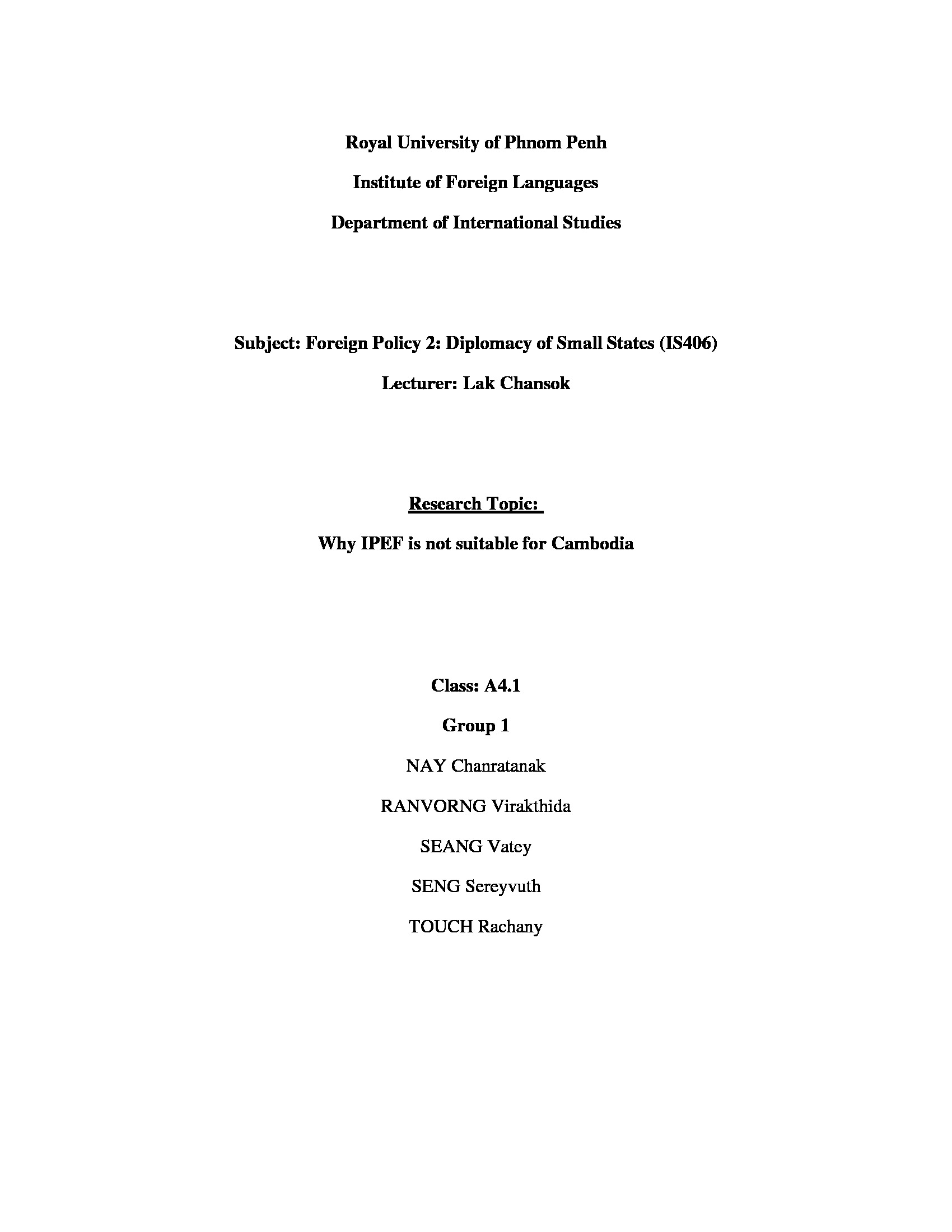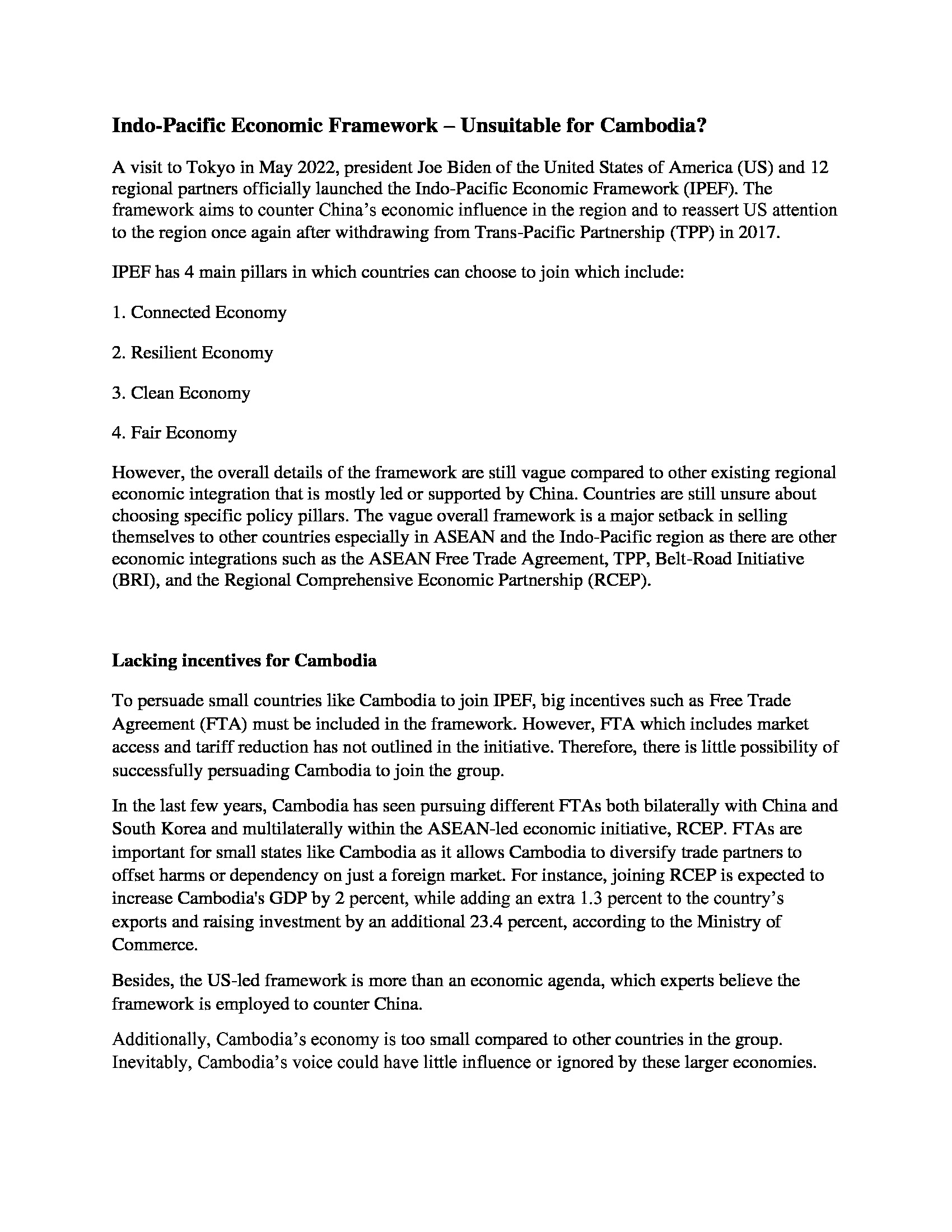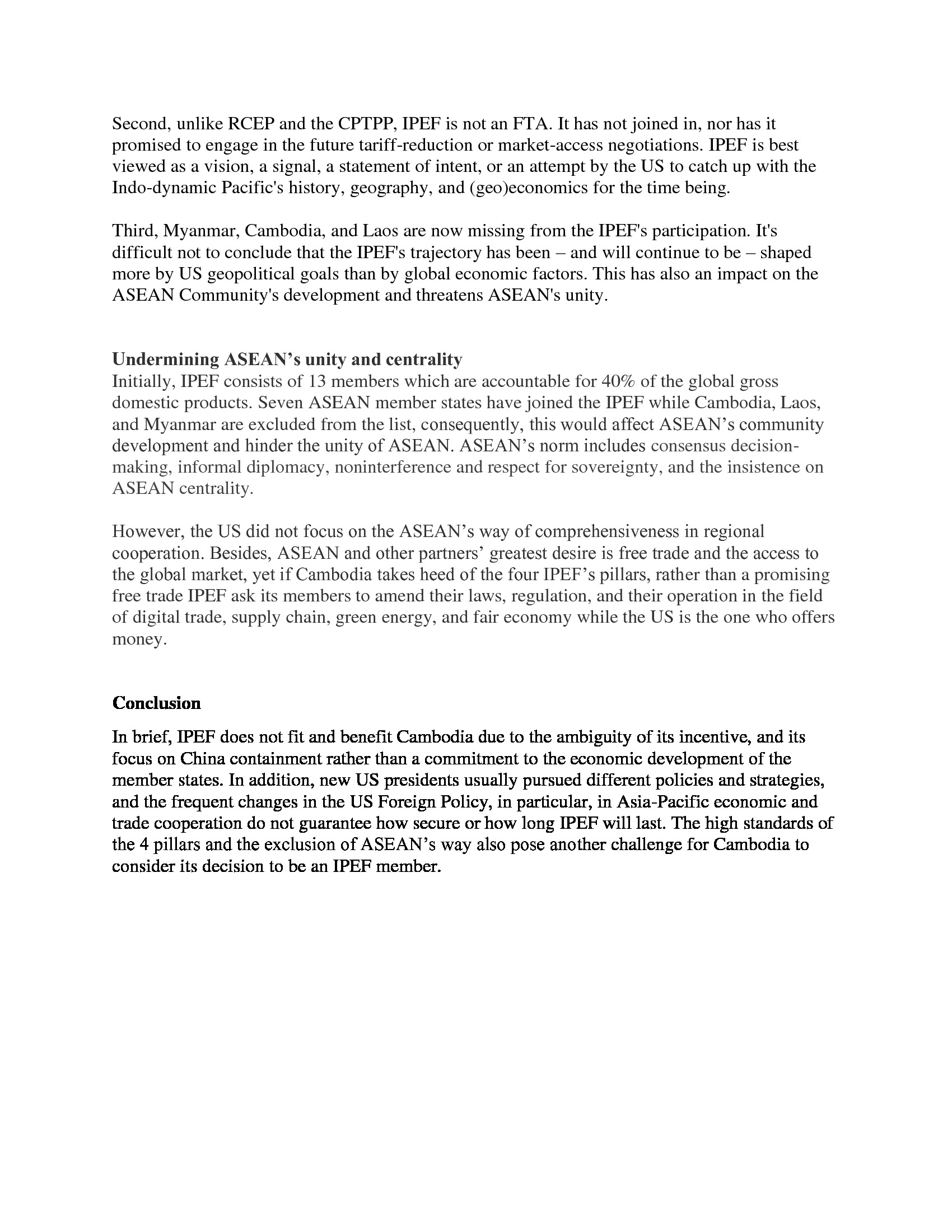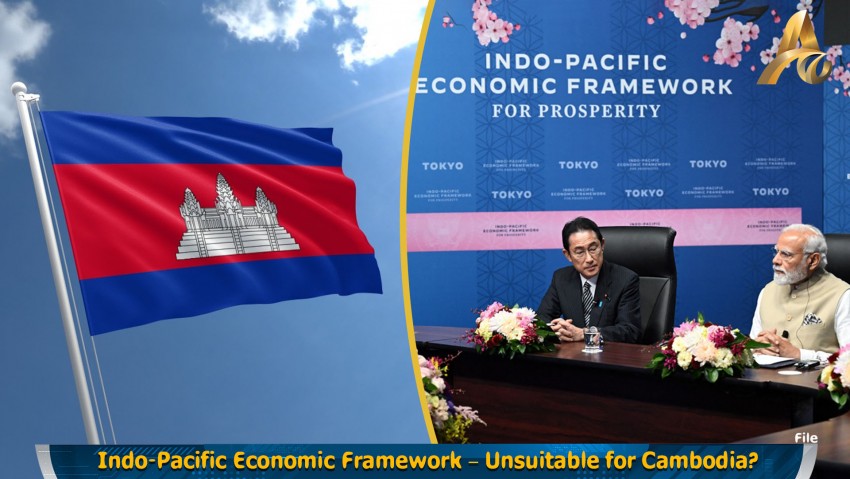Disclaimer: The following opinions and thoughts reflect only the authors' views and do not necessarily reflect the views and opinions of EAC News and affiliates.
PHNOM PENH: In May 2022, President Joe Biden of the United States of America and 12 regional partners officially launched the Indo-Pacific Economic Framework (IPEF) in Tokyo, Japan. The framework aims to counter China’s economic influence in the region and to reassert US attention to the region once again after withdrawing from Trans-Pacific Partnership (TPP) in 2017.
IPEF has 4 main pillars in which countries can choose to join which include:
1. Connected Economy
2. Resilient Economy
3. Clean Economy
4. Fair Economy
However, the framework’s details remain vague in comparison to other existing regional initiatives led or supported primarily by China. This makes it hard for IPEF to sell themselves to countries, especially in ASEAN and the Indo-Pacific region.
Lacking incentives for Cambodia
Large incentives, such as the Free Trade Agreement (FTA), must be incorporated in the framework to entice tiny nations like Cambodia to join IPEF. The framework does not include FTAs that involves market access and tariff reductions. FTAs are vital for small states like Cambodia because they allow the country to diversify its trading partners and reduce its reliance on foreign markets.
Trying to balance its focus with security commitment?
To counter China's influence in the region, Washington has established security groupings such as the Quadrilateral Security Dialogue (QUAD), Five Eyes Alliance (FVEY), and, most recently, AUKUS.
Cambodia's reluctance to join to the US-led economic endeavor is understandable. Looking back at the US-TPP relationship, it is clear that the US was not devoted to the economics, preferring to focus on the security aspect, particularly to hinder China's rise.
On the other hand, China has been the main actor in driving the economic sector, especially in ASEAN and the Indo-Pacific region. China has committed directly to the regional economy by initiating FTAs with ASEAN member states and also become an active member of many economic agreements like TPP, BRI, and RCEP.
Different US Foreign Policy in each Presidency
Despite the fact that the United States has consistently broken promises on Asia-Pacific economic and commercial cooperation, the Obama administration pushed the TPP project forward until the Trump administration abandoned it after entering office. It implies that this framework will not be secure or long-lasting as a result of the different policy arrangements that future US administrations have demonstrated in the past. Washington's policy inconsistency will only help to erode the US' credibility and policy consistency in the region.
High Standard of the Four Pillars: Unsuitable for Cambodia
The Biden administration wants the IPEF to be a high-quality agreement stating about the digital economy, labor, market monitoring, environmental protection, and anti-corruption are far higher than those set by the local laws in several ASEAN countries, or even international conventions.
Cambodia is still facing a number of significant obstacles that needs to be addressed before working with the United States. The issues include corruption, demographic shifts, unequal social development, discrepancies in economic development and technology adoption, environmental degradation, and other political and authoritarian-related issues.
Undermining ASEAN’s unity and centrality
Seven ASEAN member states have joined the IPEF while Cambodia, Laos, and Myanmar are excluded from the list, consequently, this would affect ASEAN’s community development and hinder the unity of ASEAN. ASEAN’s norm includes consensus decision-making, informal diplomacy, noninterference and respect for sovereignty, and the insistence on ASEAN centrality.
Furthermore, while free trade and access to the global market are the top priorities for ASEAN and other partners, if Cambodia heeds the four IPEF pillars, rather than a promising free trade agreement, IPEF asks its members to amend their laws, regulations, and operations in the fields of digital trade, supply chain, green energy, and fair economy, while the US offers money.
Conclusion
In short, due to the vagueness of its incentive and its concentration on China containment rather than a commitment to the member states' economic progress, IPEF does not suit or assist Cambodia.
Furthermore, new US presidents have a history of pursuing various policies and objectives, and the regular changes in US foreign policy, particularly in Asia-Pacific economic and trade cooperation, do not ensure the security or longevity of IPEF. The rigorous criteria of the four pillars, as well as the exclusion of “ASEAN Way”, present additional barrier for Cambodia as it considers becoming an IPEF member.
by Nay Chanratanak, Ranvorng Virakthida, Seang Vatey, Seng Sereyvuth, Touch Rachany























